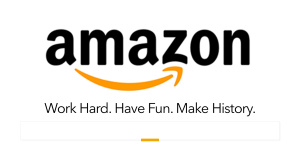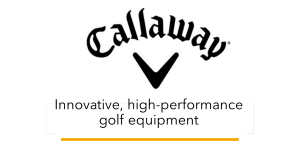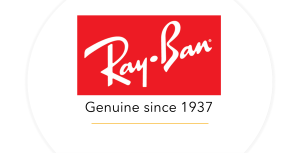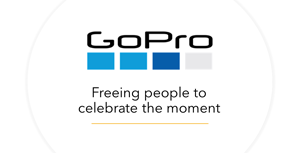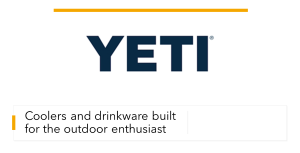Susan Adams of Next Level Performance on What's Ahead for the Industry
.jpeg) What's ahead for the incentive, rewards, and recognition field? RRN is reaching out to industry leaders for their views.
What's ahead for the incentive, rewards, and recognition field? RRN is reaching out to industry leaders for their views.Click here for EEA sponsors. Click here to subscribe to RRN. Click here for RRN media kit.
Continued steady growth for the field; a need for ROI along with creativity and innovation; the benefits of understanding that even sales and channel incentive programs are about recognition, and the understanding that AI will have a significant impact on program design, planning and analysis but needs to be carefully governed: These are among the trends cited by Susan Adams, Vice President of Engagement Strategy and Corporate Services for Next Level Performance. Adams is a past Chair of the Incentive Research Foundation.
RRN. What is your view about the state of market growth—fast, slow, none at all?
Adams. While there have certainly been headwinds over the past few years – pandemic, inflation, industry-specific economic challenges, elections – we have seen generally strong demand for recognition, engagement and incentives. Corporate clients are clearly showing that they value the results these programs can deliver, reducing turnover, increasing mindshare, and driving the bottom line, among many other benefits.
 Most business leaders are unwilling to sacrifice these important programs for short-term savings, knowing that they might risk results or dampen productivity. As the North American market moves past the election, with stabilized inflation and lower interest rates, we anticipate a time of steady continued growth.
Most business leaders are unwilling to sacrifice these important programs for short-term savings, knowing that they might risk results or dampen productivity. As the North American market moves past the election, with stabilized inflation and lower interest rates, we anticipate a time of steady continued growth.RRN. What are key trends in terms of what clients are looking for in solutions, pricing, demand for expertise or return-on-investment measurement, or any other observations you’d like to share about the market.
Adams. Clients are cost-conscious in this economic environment, but also very aware of the importance of capturing the attention of their audiences. Programs must always deliver ROI, but they must also earn the best efforts of every participant with creativity, innovation, and desirability.
The search for new destinations with adequate infrastructure is key for travel programs, as is creativity in appealing to a broader range of generations and participant types. On the platform side, making virtual recognition meaningful is a constant focus, as is creating a participant experience that connects with each individual’s aspirations and personal interests.
Clients are often working with budgets set during or prior to the inflation we have experienced, driving many to re-think program structure or the number of winners. This has led to many tiered programs, allowing reach to remain broad, while bringing more control to spending.
RRN. Do you see more recognition companies moving into incentives?
Adams. While a few companies have made the shift, either through expansion of their own services or through mergers and acquisitions, we have not seen significant change in this area. It is important to keep in mind that all programs are recognition programs, just with different program owners within the company and different goals. A sales incentive program – even in the channel – recognizes the efforts of the sales force or customers. As the Incentive Research Foundation found in the 2019 Voice of the Market report, “US businesses take an expansive view of incentives, rewards, and recognition. Program owners utilize a wide variety of tools in the pursuit of people-driven results, tailoring their strategy based on the business objectives and the audience.” This remains true today and the products and services of recognition and incentive companies can reflect that fluid approach.
RRN. What is your organization’s key focus for the coming year...or anything else you’d like to add.
Adams. We have a consistent focus on innovation and efficiency – both for our organization, and for our client programs. The explosion of artificial intelligence is changing the business at a rate faster than anything since the onset of the internet.
We asked Microsoft Copilot to draft a statement about the impact of AI on the recognition, incentives and loyalty industry, and here’s what it produced:
The advent of artificial intelligence (AI) is profoundly transforming the recognition, incentives, and loyalty industry by introducing unprecedented levels of personalization, efficiency, and strategic insight. AI-powered analytics enable companies to tailor rewards and recognition programs to individual preferences and behaviors, ensuring a more engaging and personal participant experience.
The response is intriguing, particularly its suggestion that an automated engine could boost personalization in an industry that’s renowned for creating personal experiences and interactions with employees, partners and customers. AI can help us create meaningful rewards, targeted marketing, and genuine experiences. However, it's crucial to balance these benefits with governance and security.
In the coming years we are committed to leveraging AI and technology to drive innovation and efficiency in our recognition, incentives, and loyalty programs. We recognize their transformative potential, but we also understand the importance of responsible deployment. By balancing the benefits of AI and technology with stringent governance practices, we aim to create value-driven, secure, and personalized experiences for our clients and their participants.
For More Information
Susan Adams
Sadams@nxlperformance.com>
732-379-6251
www.nxlperformance.com
Enterprise Engagement Alliance Services
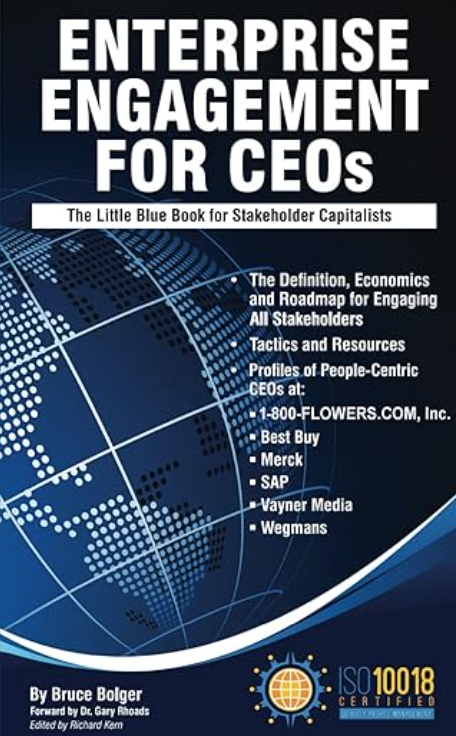
Celebrating our 15th year, the Enterprise Engagement Alliance helps organizations enhance performance through:
1. Information and marketing opportunities on stakeholder management and total rewards:
ESM Weekly on stakeholder management since 2009; click here for a media kit.
RRN Weekly on total rewards since 1996; click here for a EEA YouTube channel on enterprise engagement, human capital, and total rewards insights and how-to information since 2020.
2. Learning: Purpose Leadership and Stakeholder
 Management Academy to enhance future equity value and performance for your organization.
Management Academy to enhance future equity value and performance for your organization.3. Books on implementation: Enterprise Engagement for CEOs and Enterprise Engagement: The Roadmap.
4. Advisory services and research: Strategic guidance, learning and certification on stakeholder management, measurement, metrics, and corporate sustainability reporting.
5. Permission-based targeted business development to identify and build relationships with the people most likely to buy.
6. Public speaking and meeting facilitation on stakeholder management. The world’s leading speakers on all aspects of stakeholder management across the enterprise.
Contact: Bruce Bolger at TheICEE.org; 914-591-7600, ext. 230.







